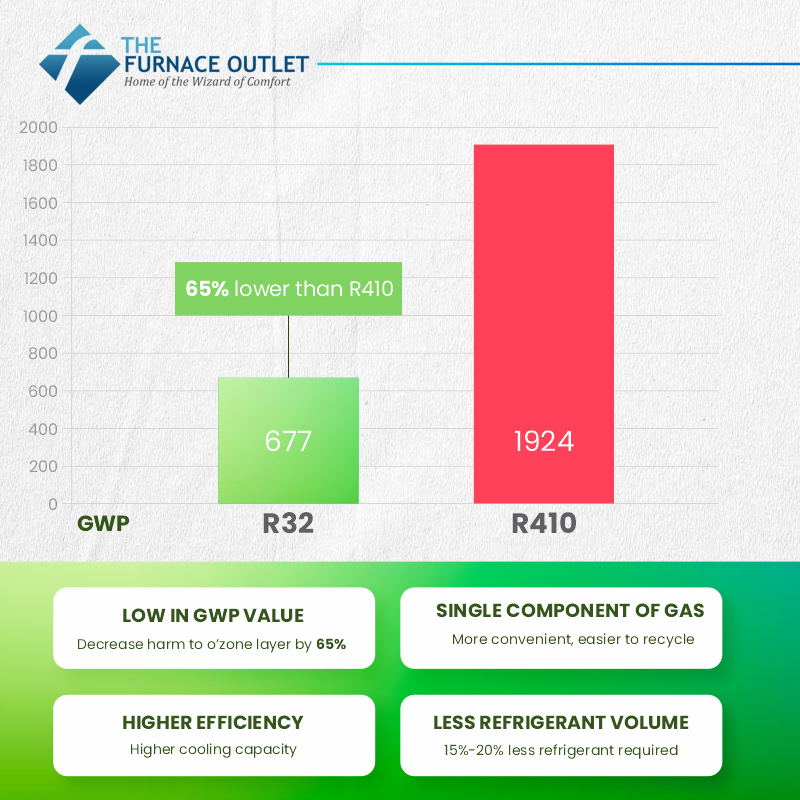In the battle against climate change, reducing greenhouse gas emissions is paramount. As the HVAC industry (AC Systems, Mini Splits & PTACs) shifts towards more environmentally friendly refrigerants, R32 has emerged as a promising solution to mitigate the environmental impact of air conditioning and refrigeration systems. In this blog post, we'll explore how R32 is making a positive difference in reducing greenhouse gas emissions and fostering a more sustainable future.
Lower Global Warming Potential (GWP):
One of the key environmental benefits of R32 is its lower global warming potential (GWP) compared to traditional refrigerants like R410A. R32 has a GWP approximately one-third that of R410A, meaning it has a much smaller impact on global warming over time. By using R32 in HVAC systems, manufacturers and users can significantly reduce the greenhouse gas emissions associated with refrigerant leakage and system operation.

Discover Top-Grade Air Conditioners: View Our Products Today
The adoption of R32 offers substantial emissions reductions over the lifecycle of HVAC systems. From manufacturing and installation to operation and disposal, R32-based systems emit fewer greenhouse gases compared to systems using higher-GWP refrigerants. This reduction in emissions contributes to overall efforts to combat climate change and achieve sustainability goals at both the individual and societal levels.
Compliance with Environmental Regulations:
Regulatory agencies around the world are implementing stricter regulations on the use of high-GWP refrigerants as part of efforts to address climate change. By transitioning to R32, HVAC manufacturers and users can ensure compliance with these regulations and avoid penalties for using environmentally harmful refrigerants. Compliance with environmental regulations not only helps protect the environment but also promotes responsible business practices and enhances corporate sustainability initiatives.
Positive Impact on Energy Efficiency:
In addition to its environmental benefits, R32 also offers advantages in terms of energy efficiency. R32 systems typically require less energy to operate compared to systems using traditional refrigerants, resulting in lower electricity consumption and reduced carbon emissions from power generation. By improving energy efficiency, R32 contributes to broader efforts to reduce greenhouse gas emissions across various sectors of the economy.
Consumer Awareness and Demand:
Growing consumer awareness of environmental issues and the importance of sustainability is driving demand for products and technologies that minimize environmental impact. As more consumers seek out HVAC systems with lower-GWP refrigerants like R32, manufacturers are responding by expanding their R32 product offerings and investing in research and development to optimize system performance and efficiency. This consumer-driven demand for environmentally friendly solutions is helping accelerate the transition to R32 and other low-GWP refrigerants in the HVAC industry.
In conclusion, R32 is playing a crucial role in reducing greenhouse gas emissions and promoting environmental sustainability in the HVAC industry. With its lower GWP, emissions reductions over the lifecycle, compliance with environmental regulations, positive impact on energy efficiency, and consumer-driven demand, R32 is helping pave the way towards a more sustainable future. By embracing R32-based technologies, stakeholders in the HVAC industry can contribute to global efforts to combat climate change and protect the planet for future generations. If you are looking for an R32 product starting with the Amana J-Series 15,000 BTU PTAC Unit.







